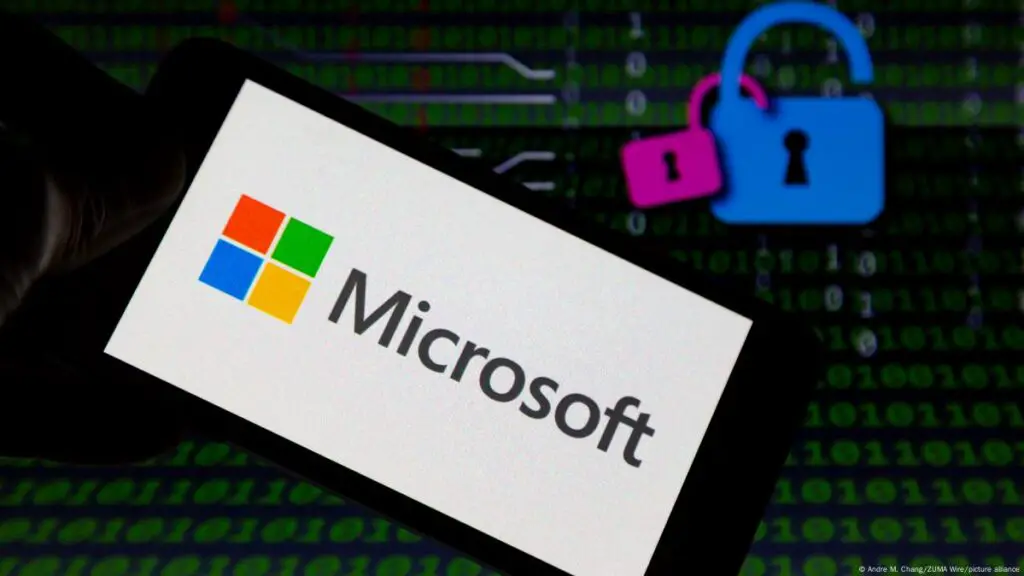In July 2025, Microsoft (MSFT) took a bold step by restricting certain Chinese firms from accessing its Microsoft Active Protections Program (MAPP). This move came after suspicions that a leak within the program had contributed to a major cyberattack on Microsoft SharePoint servers.
The incident highlights the delicate balance between sharing security knowledge and preventing sensitive information from falling into the wrong hands. The Microsoft Active Protections Program (MAPP) has been running for 17 years, giving trusted security partners early access to details about software vulnerabilities.
The purpose is to allow these partners to develop protective measures and patches before the flaws are publicly disclosed. By acting proactively, MAPP helps defend organizations worldwide from cyber threats. MAPP participants receive information on vulnerabilities along with proof of concept code, which demonstrates how the flaw could be exploited.
While this is essential for preparing defenses, it can also be misused if it falls into the hands of malicious actors. In mid 2025, Microsoft discovered critical vulnerabilities in SharePoint, a widely used platform for collaboration and document sharing.
The vulnerabilities, identified as CVE-2025 49706 and CVE-2025 49704, allowed attackers to bypass authentication, steal encryption keys, and execute remote code on affected servers.
Microsoft notified MAPP participants about these vulnerabilities on June 24, July 3, and July 7. Alarmingly, the first real world attacks were observed on July 7, the same day the last notification was sent.
This coincidence suggested that someone within the MAPP ecosystem may have leaked the information, allowing attackers to act immediately. The attacks eventually affected over 400 organizations, including critical U.S. government agencies like the Department of Homeland Security and the Department of Education.
China linked hacking groups such as Linen Typhoon, Violet Typhoon, and Storm 2603 were implicated in exploiting these vulnerabilities.
Microsoft’s Response to the Breach
In response to the suspected leak, Microsoft restricted access to MAPP for certain Chinese firms. The company also stopped sharing proof of concept code with these partners. While such code helps defenders patch vulnerabilities quickly, it can also accelerate attacks if misused.
Microsoft emphasized that participation in MAPP requires strict adherence to contracts that prohibit offensive cyber activities. Companies violating these rules are removed from the program.
The tech giant also reaffirmed its commitment to protecting users and securing the integrity of information-sharing programs.
Cybersecurity experts have weighed in on Microsoft’s decision and the broader implications for vulnerability sharing programs.
Dr. Emily Chen, a cybersecurity analyst at SecureTech Solutions, noted, MAPP has always been a vital program for proactive defense. However, sharing proof of concept code without strict controls can create serious risks. Microsoft’s move to restrict access was necessary.
Dr. Michael Lee, professor of cybersecurity at Tech University, stated, This incident underscores the challenge of balancing collaboration with security. While international cooperation is important, companies must ensure their partners are fully trustworthy.
Experts agree that programs like MAPP are crucial for global cybersecurity, but they also stress the importance of monitoring and controlling access to sensitive information.
Personal Experiences
Organizations affected by the SharePoint attacks have shared their experiences, offering valuable lessons. John Davis, IT Director at a U.S government agency, said.
Even though we applied the patches recommended by Microsoft, our servers were still compromised.
This taught us the importance of continuous monitoring and rapid response. Sarah Kim, Chief Information Security Officer at a multinational corporation, remarked,
MAPP provides early warnings, but the risks of information leaks must be carefully assessed.
Organizations need layered defenses beyond early alerts. These personal experiences emphasize that even the most proactive programs cannot replace strong internal cybersecurity practices.
The suspected leak from MAPP raises several key concerns, Trusted partners may intentionally or accidentally misuse sensitive information. Programs like MAPP need stringent rules and continuous monitoring to prevent leaks.
Many of the affected SharePoint servers were on premises, which are harder to patch and maintain than cloud systems. The incident also highlights the global cybersecurity implications of sharing sensitive vulnerability data.
While collaboration is necessary to prevent attacks, it must be paired with accountability and secure information management.
Lessons Learned and Moving Forward
Several lessons emerge from the SharePoint hack and Microsoft’s response. Organizations must continuously monitor their systems, even after patches are applied. Early alerts alone are not enough robust internal defenses are essential.
Companies sharing sensitive information should ensure partners are thoroughly vetted and monitored. Timely action is crucial to mitigate the impact of exploits.
Microsoft’s restriction of certain Chinese firms from MAPP illustrates the need for careful management of international cybersecurity collaborations. The Share Point hack serves as a stark reminder of the complex risks involved in cybersecurity information sharing.
The Microsoft Active Protections Program (MAPP) plays a critical role in defending organizations worldwide, but the recent leak demonstrates that trust must be paired with strict oversight.
As cyber threats continue to evolve, organizations must maintain vigilance, implement layered security, and foster a culture of accountability. Microsoft’s actions also highlight that even established programs require continuous review and improvement to protect users and maintain global cybersecurity.
The incident is not just about technology it’s about trust, responsibility, and proactive defense. Programs like MAPP remain invaluable, but their success depends on careful management, strong partnerships, and a commitment to safeguarding sensitive information.

